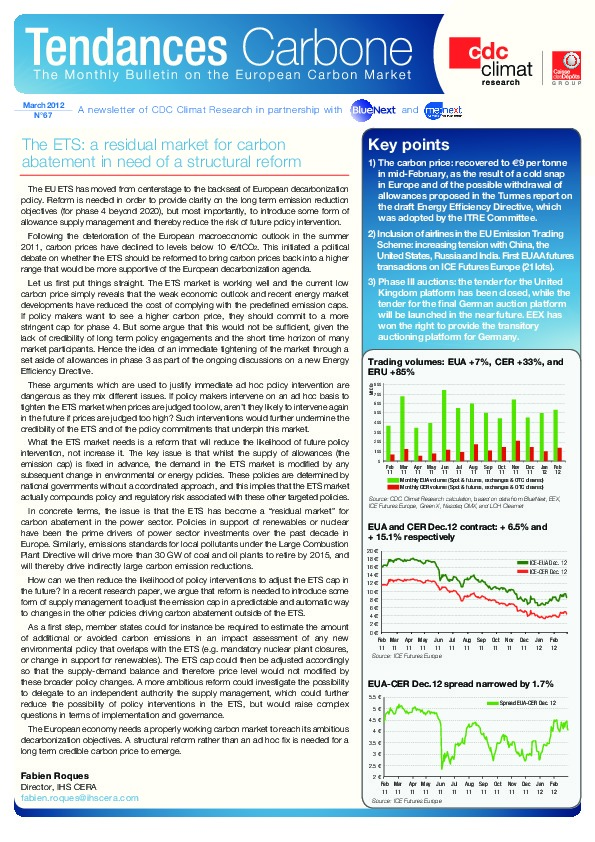The ETS: a residual market for carbon abatement in need of a structural reform
The EU ETS has moved from centerstage to the backseat of European decarbonization policy. Reform is needed in order to provide clarity on the long term emission reduction objectives (for phase 4 beyond 2020), but most importantly, to introduce some form of allowance supply management and thereby reduce the risk of future policy intervention.
Following the deterioration of the European macroeconomic outlook in the summer 2011, carbon prices have declined to levels below 10 €/tCO2. This initiated a political debate on whether the ETS should be reformed to bring carbon prices back into a higher range that would be more supportive of the European decarbonization agenda.
Let us first put things straight. The ETS market is working well and the current low carbon price simply reveals that the weak economic outlook and recent energy market developments have reduced the cost of complying with the predefined emission caps. If policy makers want to see a higher carbon price, they should commit to a more stringent cap for phase 4. But some argue that this would not be sufficient, given the lack of credibility of long term policy engagements and the short time horizon of many market participants. Hence the idea of an immediate tightening of the market through a set aside of allowances in phase 3 as part of the ongoing discussions on a new Energy Efficiency Directive.
